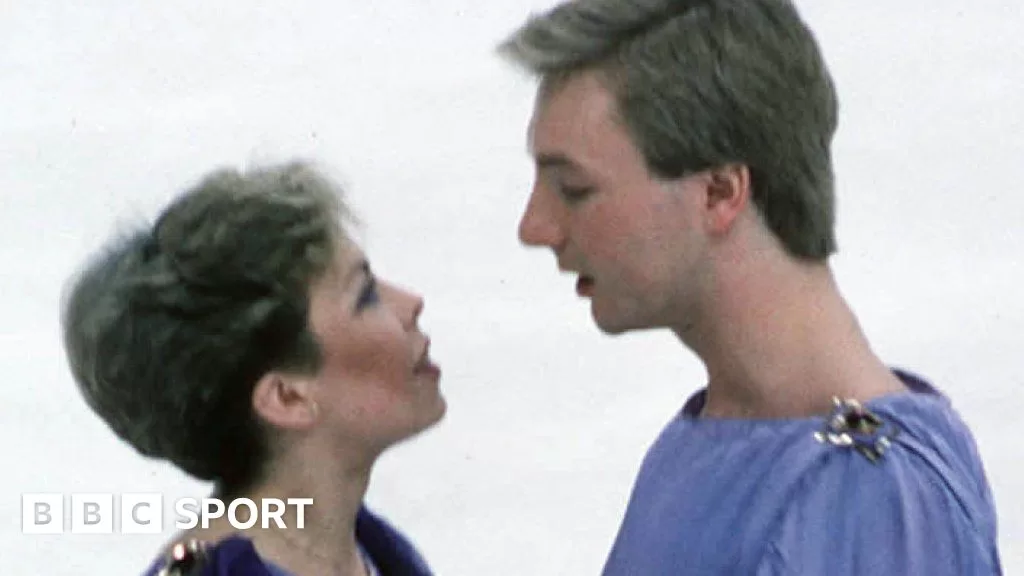“We felt strongly about what we were doing,” says Dean, 40 years on. “It was only other people who felt it was a gamble.”
“We always had to be one step ahead with where our ideas were creatively,” adds Torvill. “We tried to tell a story – so it had a meaning.”
But 1984 was a time when narratives competed to crush one another.
Cold War nerves were frayed thin with American and Soviet warheads bristling in silos, amid false alarms and dangerously realistic military exercises.
At home, there was also conflict.
A few weeks after Torvill and Dean’s arrival in Sarajevo, the miners’ strike – a year-long dispute that divided families, communities and their home county – began.
On the rink, there was no escape from politics either; a schism ran through the ice.
There were the traditionalists, who believed in respecting ice dancing’s ballroom roots. They prioritised a mix of decorum and control – a chilled accuracy, efficiency and propriety in the skaters’ movements.
A new wave was breaking ground though – a looser, dramatic, romantic style was emerging, one that thrilled crowds, even if it put off old-school judges.
The two approaches were different. And in a subjectively-scored sport, where medals were decided by the numbers dished out by judges, being too different made you vulnerable.
Initially Torvill and Dean had leaned towards a conservative approach.
They were coming into the Olympics on the back of a hat-trick of world title wins. There was little to prove, and so much to risk.
This, as far as they knew, would be their final shot on the greatest stage, as they were bound for the professional circuit, barring them from future Olympics under the rules of the time.
A throw-back 1930s razzmatazz showtune from the musical 42nd Street was planned. It would show off their skills, and satisfy both judges who preferred a classical routine and those who favoured the more colourful.
But would it satisfy Torvill and Dean themselves?
Over a west London dinner party, after rifling through cassette tapes in search of a tune and a theme, they decided ultimately it wouldn’t.
An altogether more daring crescendo to their Olympic careers was called for.
In the basement of their hosts’ flat, pleated silk outfits were dip-dyed purple. An arranger was recruited to cut 15 minutes of music by two-thirds, while preserving it’s shimmering heart. And Torvill and Dean retreated to Oberstdorf in the Bavarian Alps to work on something new away from prying eyes.
“These days, with camera phones and social media, it is very hard to keep things under wraps, but nobody really knew what we were doing,” says Dean. “We believed in what we were doing, as opposed to listening to those saying that it wasn’t right for Olympic year, that we should do something safer.”
“We wanted to do something that we had never done and that had never been seen before,” adds Torvill.
Certainly nothing like Bolero had been done before. Arguably nothing has matched it since.
